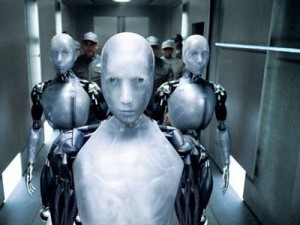Challenges for Artificial Cognitive Systems
// January 29th, 2012 // No Comments » // Artificial Intelligence, Research
Along the last weekend (from 20 to 22 February of 2012), an extra workshop organized by the euCognition research network was held at Oxford: the second edition of Challenges for Artificial Cognitive Systems.
I was interested to attend this workshop in order to figure out answers to the following questions:
- Is it necessary to include cognition in artificial systems in order to create one (Service Robot) that can be useful in dynamic human environments?
- Which kind of cognitive abilities do we have to include for a particular type of robot?
- What are cognitive abilities anyway?
The workshop was planned as a set of discussion sessions. The environment allowed discussion and debate. People that attended really wanted to find answers. The result, was a very dynamic and interesting debate about all those questions and other related.
First, we discussed about the kind of cognitive skills an artificial system would need. This lead to the following basic list:
- Ability to interact with humans in a natural way (whatever this means)
- Adapt and learn from the environment
- Able to achieve a goal autonomously
This list answered on a broad sense the third question in my mind (what are cognitive abilities?). However, I did not feel completely satisfied with those definitions and still need something more concrete…
We discussed then how can we measure progress in those goals without allowing to cheat. This means, how can we create a kind of scale that measures how much of those points has been achieved and up to which degree, identifying at the same time that the system showing those abilities is not using something else that is not cognitive (like for example a table with all the possible states of the system and the answer to provide to each one).
Related to this last point, we saw the necessity to identify which kind of tasks require cognition in order to be solved, and which ones don’t. This point was related to my two first questions, and can be otherwise stated as which classes of problems require cognitive abilities in order to be solved?. Of course, no satisfactory answer was provided and the issue remains open for next meetings (and years).
Apart from what I have mentioned above, I found the following point a very important observation made at the meeting:
current artificial intelligent systems have reached a plateau of improvement. It looks like a way to move away from that plateau is to incorporate more cognitive abilities to our artificial intelligent systems.
I did not feel quite happy with neither the definition of cognitive system nor of the list of abilities required for such a system. And the reason is that for me, understanding is the only and basic cognitive ability upon anything else a robot must construct. By means of understanding, a system is able to acquire meaning through its interaction with the environment, and use this meaning to survive, adapt, learn and generate its own goals (you can read what I mean by understanding at this blog post). I think that understanding, and only this is the special characteristic that defines a system as cognitive. Unfortunately, current artificial systems have almost no understanding.
If you are interested, the official results are published at the wiki of the euCognition project.


